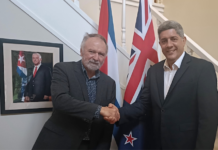Melanie Reid’s video story on the Tanah Merah megaproject. Video: Newsroom
SPECIAL REPORT: By Melanie Reid and Bonnie Sumner of Newsroom
Newsroom.co.nz
An Auckland property developer is involved in a company linked to carrying out deforestation in Indonesian-controlled Papua, where virgin rainforest is being bulldozed to grow palm oil plantations. Newsroom Investigates.
From above, the satellite image shows two insignificant dark-coloured shapes, like a couple of missing puzzle pieces in a flat sea of green. But on the ground, they represent devastation.
This innocuous picture illustrates the beginning of what is earmarked to become the world’s largest palm oil plantation, replacing one of the last remaining rainforests on earth.
Two years ago, the Tanah Merah megaproject began clearing just 230 hectares in Papua, the Indonesian-controlled half of New Guinea (the other half of the island is Papua New Guinea).
- READ MORE: Investigation: The secret deal to destroy paradise
- The Tanah Merah project is a bellweather for Jokowi’s permit review
- Nusantra Atlas
- Other Asia Pacific Report articles on West Papua
That relatively small land area was just a warning of what is predicted to come: 270,000 hectares have been allocated to the project, an area 10 times the size of Auckland’s Waitakere Ranges.
After halting work due to alleged non-payment of staff salaries, in March this year the bulldozers arrived again and forest clearing resumed. This can be seen using near-real time satellite imagery on Nusantara-Atlas.org – the newly felled sections of rainforest are in pink.
The project is divided into seven concessions — parcels of land — of around 40,000 hectares each in Boven Digoel, a regency in Papua’s southeast.
Documents obtained by Newsroom show three of those seven concessions are controlled by a company called Digoel Agri Group, whose majority shareholder is listed as a New Zealander. (Read the full response from Digoel Agri Group here.)
Environmental experts say the Tanah Merah project is a sign of things to come and if this entire forest is razed it will be catastrophic — hundreds of millions of tonnes of carbon will be released, contributing to the world’s failure to stay under two degrees Celsius of warming.
So why, when we face a climate emergency of biblical proportions, is an Auckland property developer involved in the felling of some of the world’s most diverse, intact, old-growth forest?
‘Charming’ and ‘brazen’
Neville Mahon is 61 with a soft face and a swatch of sandy hair that was once red. (See David Williams’ story looking at Mahon’s business history here)
He has an affable demeanour, and enjoys a weekly standing appointment with a group of associates at a popular Chinese restaurant in Auckland.
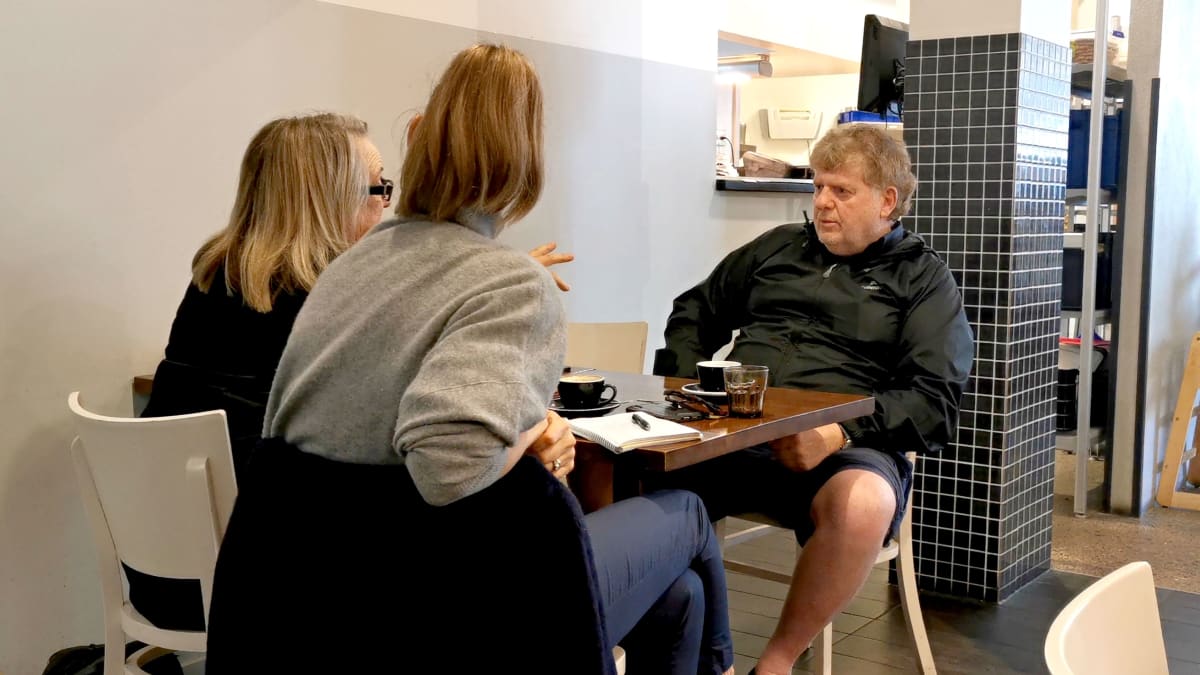
He cuts a controversial figure in New Zealand — he doesn’t do social media, and the only online accounts of his existence are a bunch of articles that detail court cases over failed property developments and a Wikifrauds page dedicated to his involvement in the Fiji Beach Resort & Spa, which says dozens of mum and dad investors were left out of pocket in 2010.
(Mahon’s name is registered against more than 120 New Zealand companies, the bulk of which are now defunct.)
Newsroom has spoken with a number of people on the condition of anonymity who have had dealings with him. They variously describe him as “charming”, “brazen” and someone who “worries about looking like a bad guy”.
Sometime around 2015, after he had extricated himself from the Fiji Beach Resort & Spa debacle, Mahon jumped on a plane to Jakarta for business meetings with some Indonesian movers and shakers.
It was to be the beginning of a new chapter in Mahon’s life, a move away from property and into what he described to Newsroom as the “resource sector”.
Three years later, his name popped up as a majority shareholder alongside that of Indonesian political operator Ventje Rumangkang on a companies registration document under the business name Digoel Agri Group.
Rumangkang was the patriarch of a well-connected family and one of the founders of the Democratic Party in Indonesia. He died suddenly last year and his son, Jones, took his place as Digoel Agri’s managing director.
Permits to log rainforest and create palm oil plantations cannot be bought and sold, they can only be issued by local government officials. So instead they are allocated to companies.
In the case of Digoel Agri, three subsidiary companies were set up to manage three concessions as part of the Tanah Merah megaproject.
Tanah Merah’s incredibly murky and complex history was exposed in an extensive international joint investigation by Gecko Project, Mongabay, Malaysiakini and Tempo, which lays out a web of multiple concessions, shell companies, mystery investors, court cases and claims of permit falsifications.
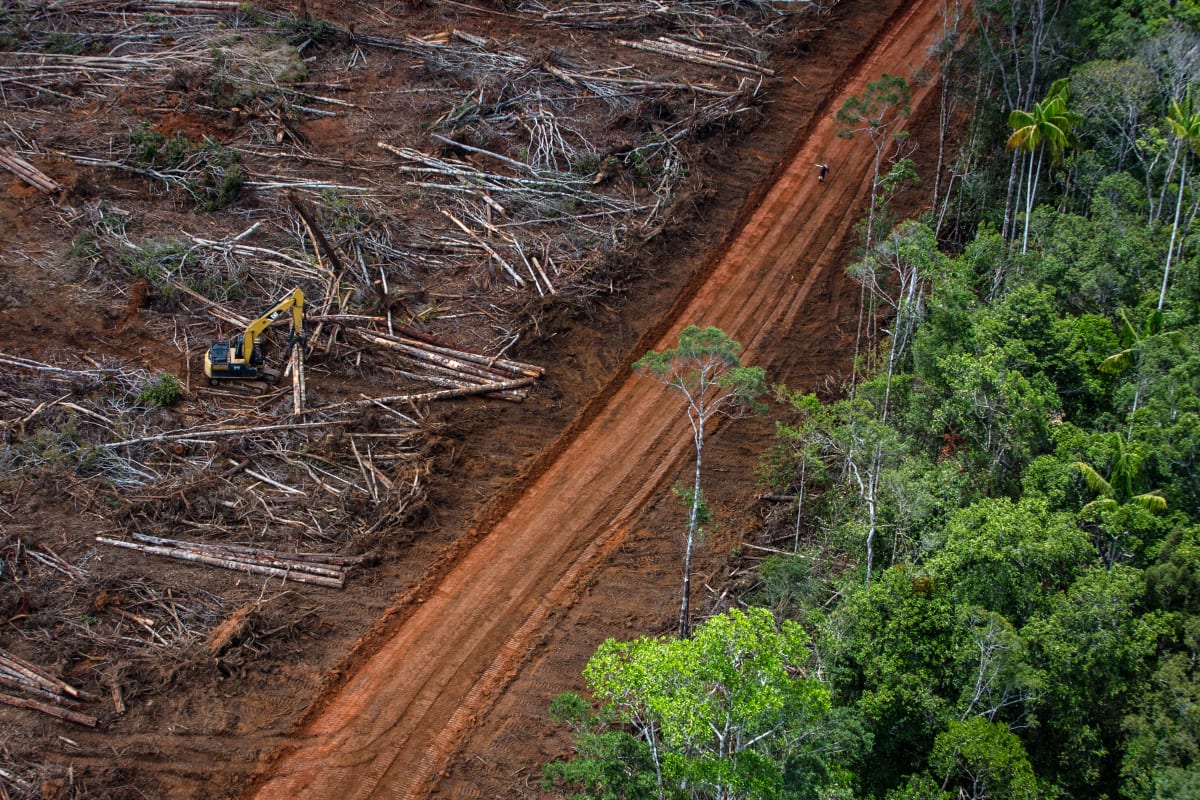
The investigation also exposed Neville Mahon’s involvement in the project, describing him as the Rumangkang’s chief investment partner and the majority shareholder — claims he would come to dispute in a face-to-face meeting with Newsroom.
Another name that also appears on the documents is Australian man Selva Nithan Thirunavukarasu, known as Nithan Thiru.
He was a director of Gleneagles Securities, an Australian financial services firm — the very same company believed to have looked after Mahon’s money from the Fiji Resort & Spa development.
Thiru’s name also appears on the New Zealand companies documents from another property development involving Mahon, a worker accommodation complex in Queenstown that never eventuated.
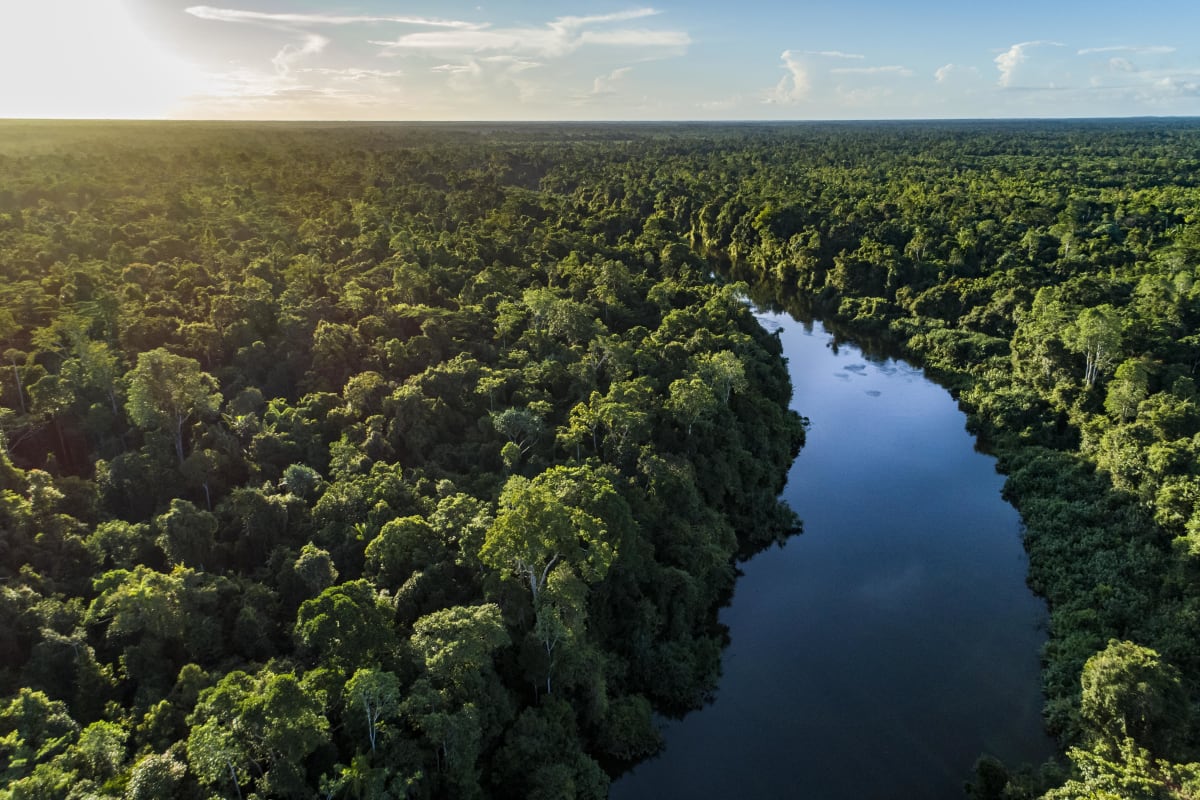
The Kiwi tree defender
Tanah Merah is just one of a number projects on the island involving dozens of players from around the world, including the Middle East, Korea and Malaysia, who are already turning the varied flora into monocrop forests of palm oil trees.
But a network of individuals and organisations is attempting to shine a spotlight on what’s going on in Papua to prevent what they say is an environmental and human rights calamity.
One of those is Grant Rosoman. Tall, lean and 60 years old, he looks more university professor than tree-hugger, despite dedicating his life to protecting tropical forests and their inhabitants.
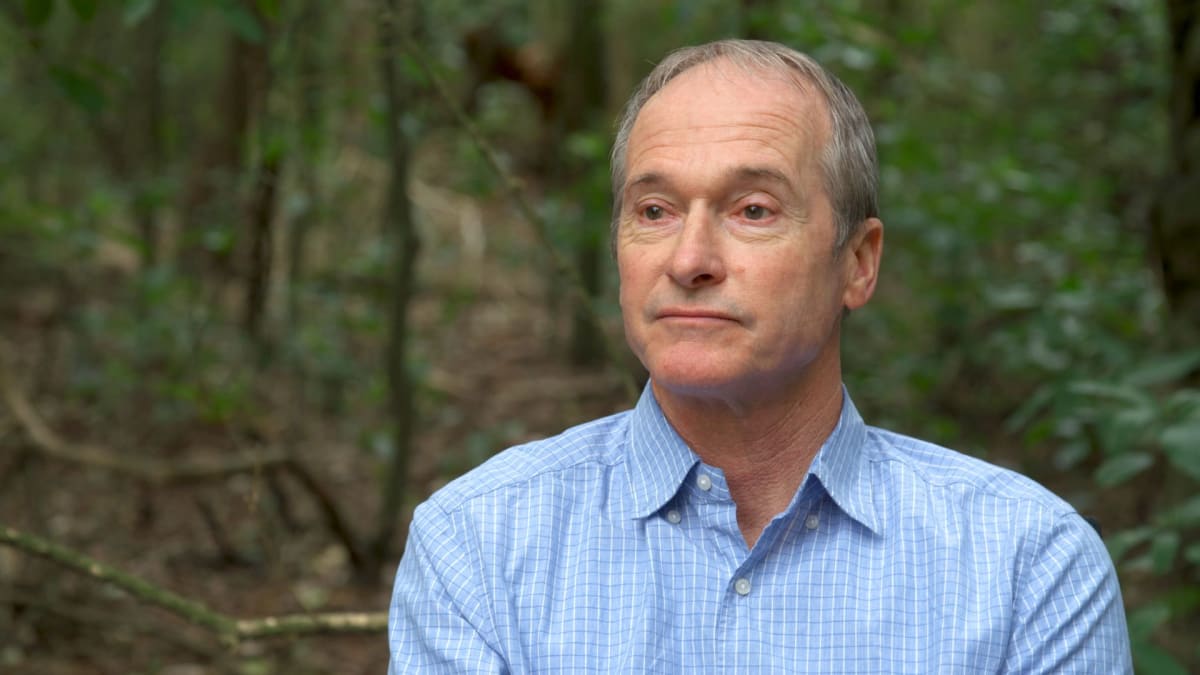
In the late 1980s and early 1990s he worked to halt the importation of kwila coming from Indigenous communities in Malaysia, at one point chaining himself to a log at a Christchurch timber yard. His campaigning succeeded.
“We managed to drop imports down to a fifth of what they were and to raise awareness of the issue. Because people had no idea their decking was coming from the destruction of people’s lives and forests. And it’s a bit the same with Papua.”
As a senior adviser to Greenpeace International, he tells Newsroom he is shocked a fellow New Zealander is involved in this – and warns the impact of losing a forest this size during a climate crisis will be catastrophic.
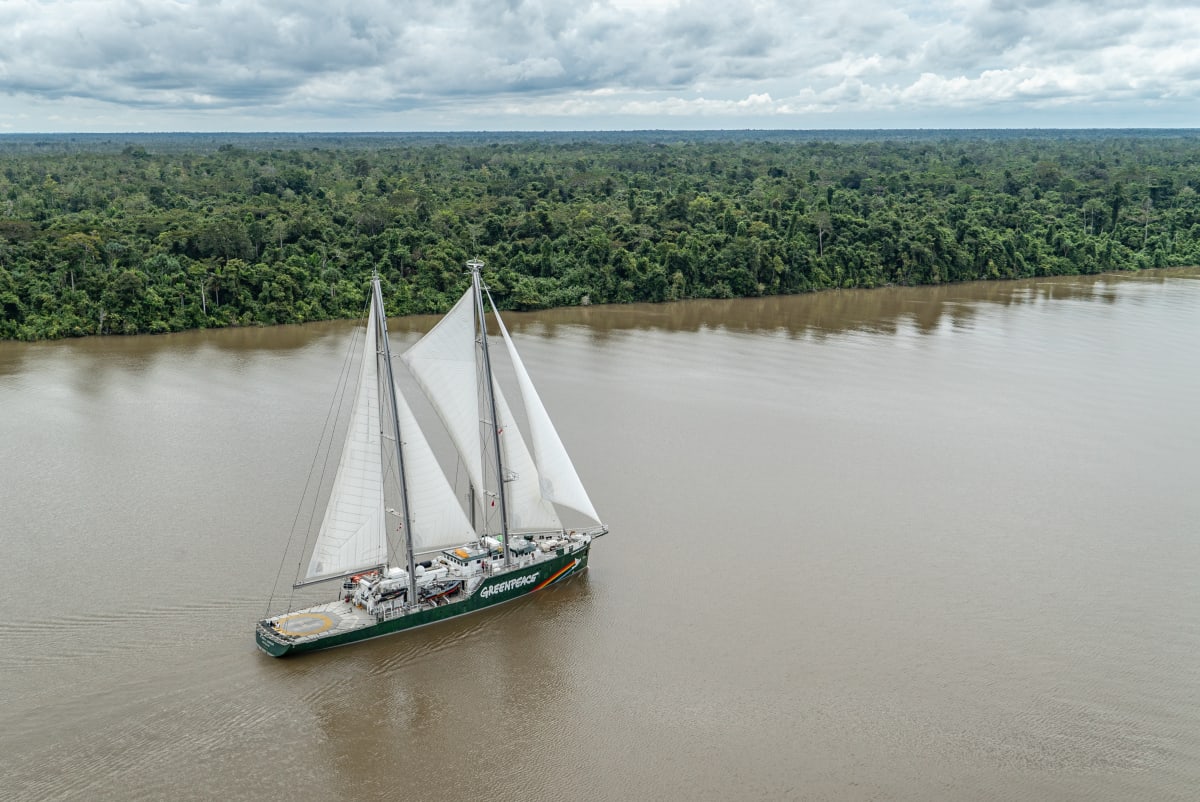
“If we lose this forest then we don’t survive climate change. That’s how important it is for everyone.”
He says all New Zealanders should be concerned about what’s going on over there.
“This is the first time I have come across a New Zealander investing in tropical rainforest destruction.”
But, isn’t it a bit rich for someone from Aotearoa New Zealand — a country that has systematically wiped out two thirds of its native forest in favour of naked rolling landscape covered in cows and a tidal wave of urban housing — to pass judgment when another country seeks to make money from its primary resources?
“We in Aotearoa made the mistake of clearing most of our lowland forest and now there are massive very costly national and local programmes to restore the forest that has been lost. We don’t want Papua to make the same mistake, especially for the local customary communities that are so reliant on and spiritually tied to their forests. The local communities are telling us this,” says Rosoman, who adds that they instead support local enterprises that protect the forest but also generate an income, such as sago, medicinal plants and spices, and ecotourism.
“Destroying the forests of Papua for the benefit a few wealthy Indonesian elites or foreign investors like Neville Mahon is not development.”
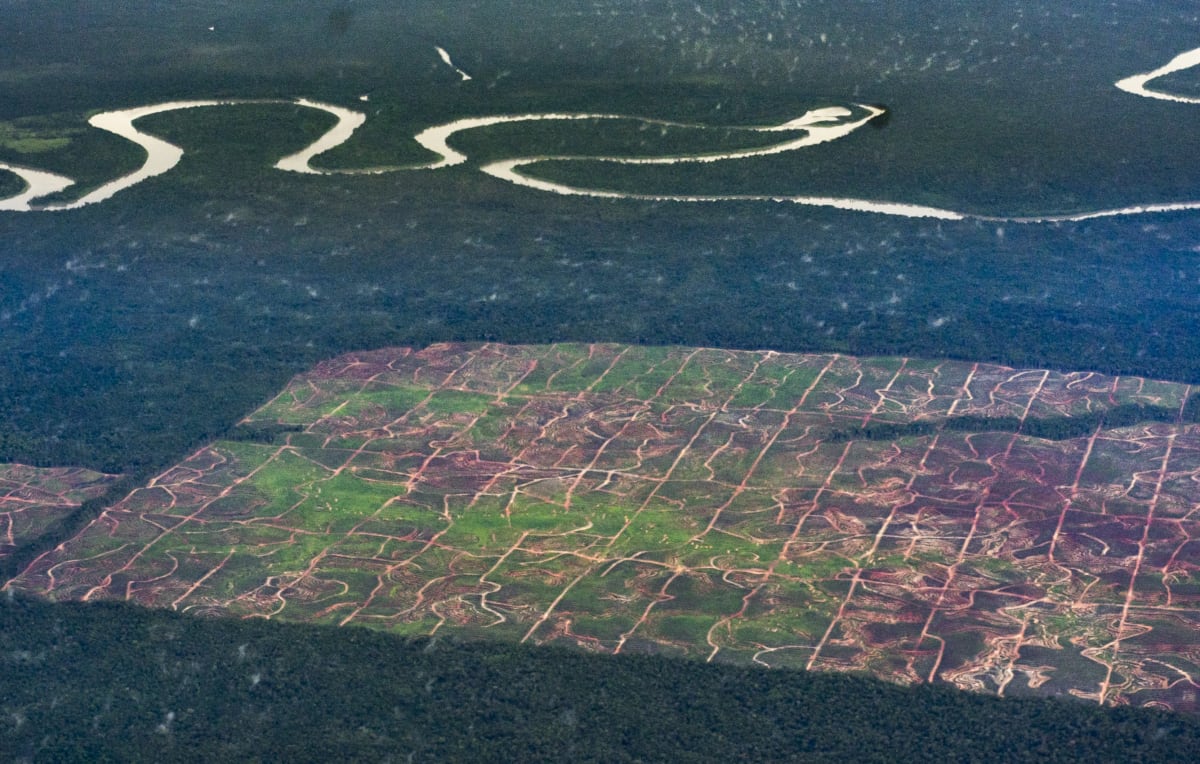
Atlas of destruction
New Guinea’s landscape is extraordinary. Mangroves and peat swamps sit alongside tropical alpine grasslands and lush forests: a recently released study in Nature journal proclaims it as “the most floristically diverse island in the world”, home to more than 13,000 species of plants.
It is the world’s largest tropical island, with 83 percent of Indonesian New Guinea supporting old-growth forest, and the third largest rainforest after the Amazon and Congo.
But Indonesia, the fourth largest emitter of carbon, carbon dioxide and greenhouse gas emissions and by far the world’s biggest producer of palm oil, is running out of arable land to grow the fruit.
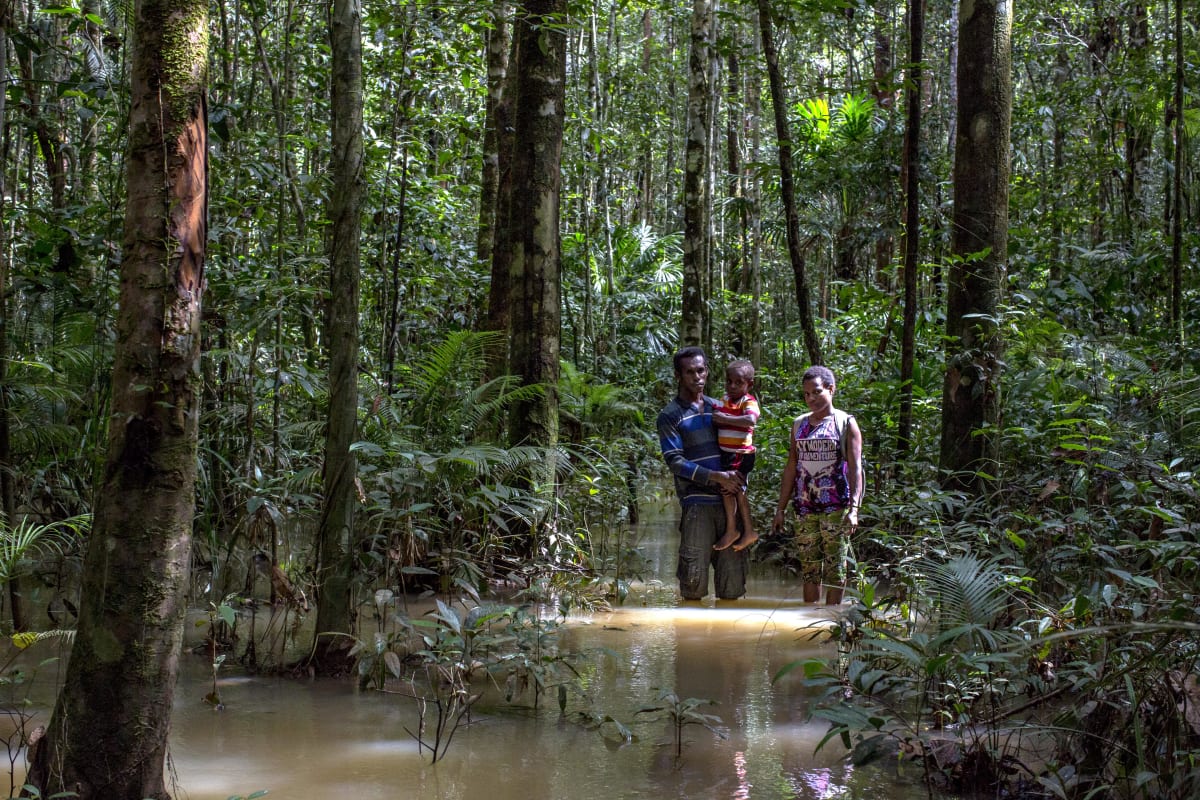
The thing about palm forests is they have a shelf life — after 25 to 30 years these vast monocrops begin to fail because the soil no longer holds up.
In the last few decades around 21 million hectares of Indonesian land has been relinquished to plantation companies. To put that in perspective, Aotearoa New Zealand’s landmass totals 26.8 million hectares.
Used in everything from biscuits and shampoo to biofuel and supplementary feed for Kiwi cows, palm oil made the Southeast Asian country $23 billion last year — and Papua is Indonesia’s final frontier for this moneymaker.
After laying waste to millions of hectares of primary forest in Borneo and Sumatra, this island is the last remaining opportunity to exploit the primary forest for timber and to grow colossal tracts of palm oil monocrops to feed the demand for the ubiquitous product.
Deforestation accounts for the bulk of Indonesia’s CO2 emissions, and this month Indonesia cancelled an agreement it had with Norway to halt deforestation in exchange for hundreds of millions of dollars in environmental protection incentives.
A meeting with Mahon
Mahon told Newsroom he couldn’t speak on behalf of the company, but did eventually meet us at a Newmarket café so he could address some of the allegations reported about him in overseas media.
He orders tea and agrees to let us take notes.
Mahon disputes the four main accusations: that he has a majority shareholding in Digoel Agri Group, that the company has an interest in timber, that the concession area is rainforest at all, and that the land is being used to grow oil palms.
He says the claims are all “bullshit”, and can’t figure out why anyone in New Zealand would be curious about the topic: “What the hell….it’s in Indonesia, it’s in the back end of nowhere, what is the interest here?”
When asked why he hadn’t attempted to rectify the inaccuracies before, he says: “These people are so nasty that even if you tried to correct it, you’d just get yourself into a worse mess.”
By “these people” he means reporters and organisations like Greenpeace International.
“There are people that are out there that are paid to cause that sort of trouble. I mean that’s the reality, they’ll seize on anything.”
Throughout our conversation Mahon repeatedly denies that the area the Digoel Agri concessions cover is rainforest.
“There’s no virgin rainforest in there whatsoever. That’s actually just complete and utter bullshit. That area was cleared out by Malaysians 35 years ago. I mean, it’s just a stupid allegation to start with. If it was a rainforest, I can assure you my partner and my children wouldn’t even want to walk out the door.”
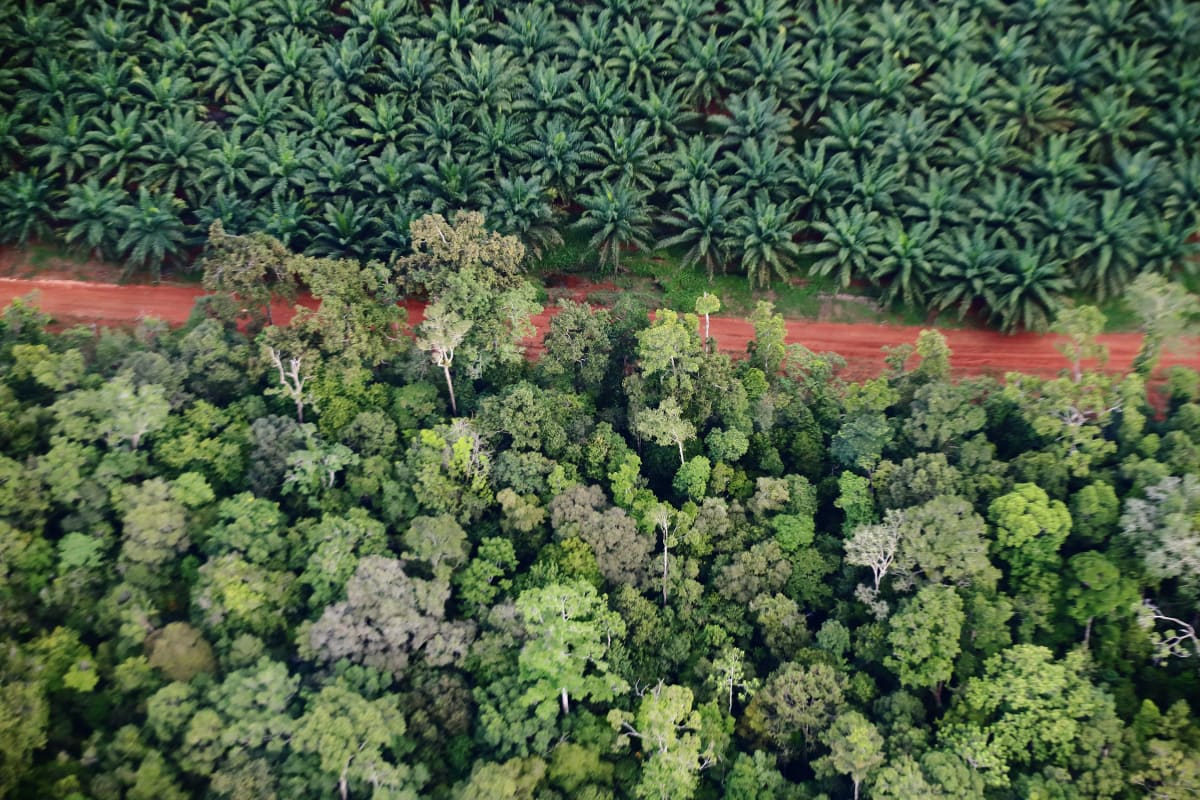
We put this to Grant Rosoman, the forest protector from Greenpeace. He tells Newsroom this is “patently incorrect”, and points to satellite images, aerial photos, field visits and an assessment of timber that all show the concession area is predominantly primary forest.
French environmental scientist Dr David Gaveau, who lived in Indonesia for 15 years and has also been to the area in question, backs this up. He set up Nusantara-Atlas.org for exactly this reason.
“In April I saw that the clearing [in Boven Digoel] had continued since I first looked at it two months before. That’s the whole point of the system, to be able to demonstrate a conservation outcome. Consumers don’t want the food they eat to be causing deforestation.
“The companies have understood this and they’ve signed on these no deforestation pledges. So what we’re doing is developing a system that can verify these pledges on a near real-time basis.”
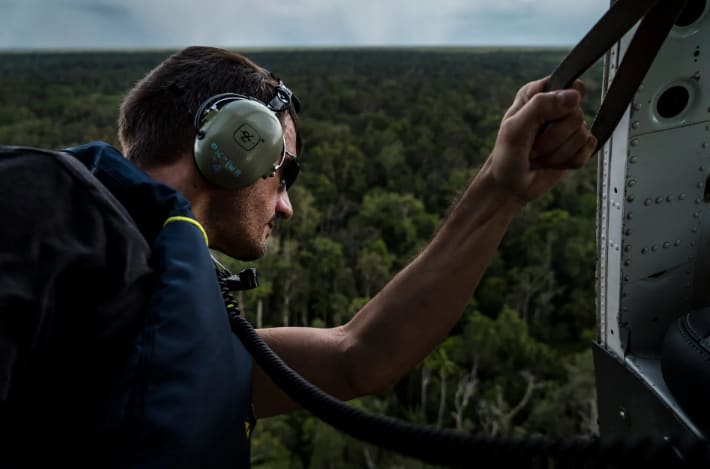
The platform works as an alert system so officials, NGOs or anyone with a computer and an internet connection can see what’s happening.
“These forests are becoming a very rare resource. And we all know they are an important part of the world’s ecosystems for earth to thrive and for humans to thrive. And so why is it still happening? Why is New Zealand even involved in this?”
‘Majority’ shareholder
But just how involved really is Neville Mahon? In international reports, he is listed as a majority shareholder in Digoel Agri Group, something he strenuously denies at our meeting.
He tells Newsroom he and his family own just “seven to eight percent” of the company.
“It would be quite nice if we did own it,” he says with a laugh. “The reality is we don’t, but my family have a small shareholding,”
Instead, he says he temporarily “fronted” the company when it was first set up.
“What happened was about five or six years ago when the opportunity came up from an Indonesian family I basically sorted a deal out and then I had to pass most of it on. I just didn’t have the money to fund it. But the problem is it was my name there on day one. And so everybody seized on my name.”
Newsroom sought companies records for Digoel Agri Group from the Indonesian government via four separate sources. All documents have been vetted as legitimate and all four — one from 2018, another from 2019 and two from this year — show Mahon as a majority shareholder.
Whatever his exact beneficial shareholding, or exactly how it is configured, what our investigation can confirm is that he was forecast to receive profits from rainforest timber production into the millions this year.
Another contentious issue is the intended land use. Mahon takes a sip of his tea and leans over the table. The company’s shareholders are only interested in bare land and agriculture, not timber, he tells us.
By agriculture, does he mean palm oil plantations?
“What the Indonesian government is motivated towards is food. They’re importing something like 70 percent of their food. So our interest is to put rice, soya beans, sorghum, cattle, you know, whatever we can on it because you’re on the back door of 240 million people.”
But documents from the Indonesian government obtained by Newsroom and translated into English are clear: the concessions attached to the Digoel Agri Group subsidiary companies are expressly for logging and palm oil.
For food crops to be planted, they would need new permits to be issued.
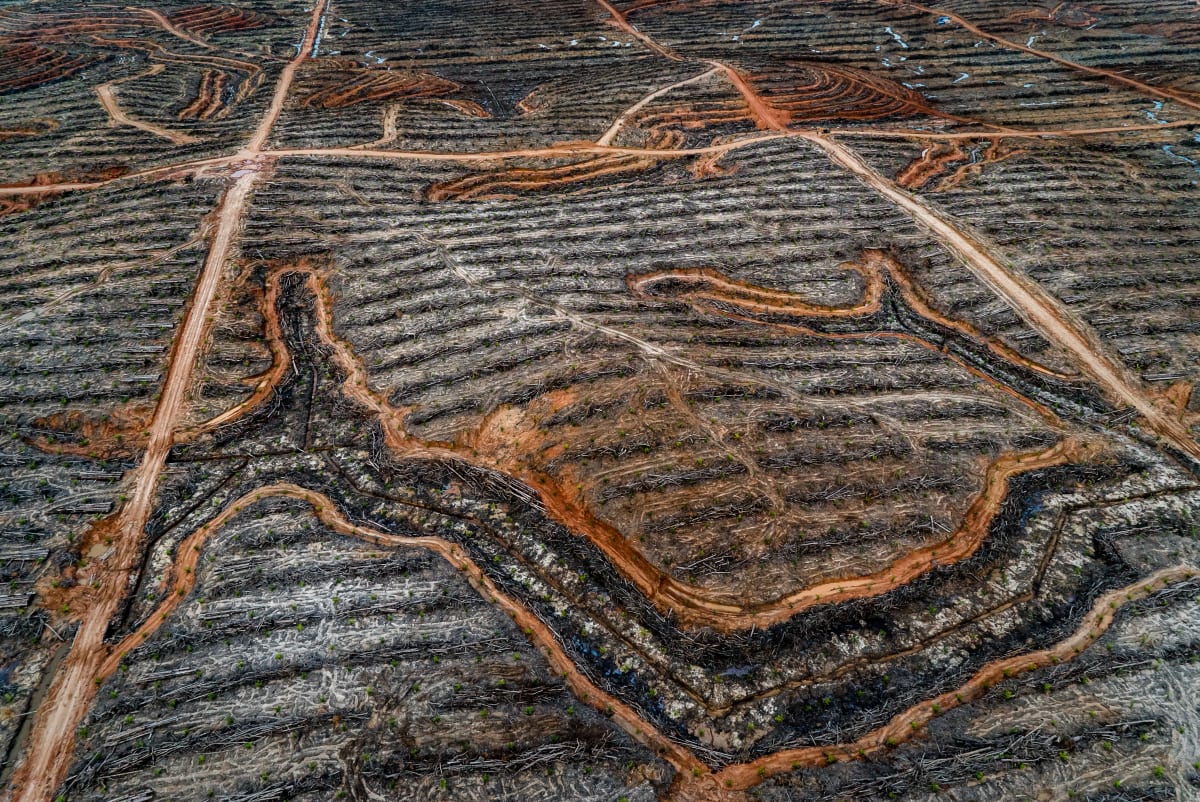
Finally, we wanted to know about the trees. Reports indicate the timber involved in the Tanah Merah project is estimated to be worth US$6 billion, and a sawmill owned by Malaysian logging giant Shin Yang has reportedly been set up on the island.
Mahon says he has “no interest” in the wood: “We have nothing to do with the forestry at all, nothing to do with it. This is just regrowth, which hasn’t even got a lot of value because it’s not, for example, mahogany. What you’ve got to remember is I, or my shareholders, have got no interest in that side of it at all.”
Yet in a judgment issued by the High Court at Auckland in June in a bankruptcy proceedings case against Mahon, Justice Sussock writes of Mahon referring in his evidence to the possibility of security being provided at some future date “from a debt that is due to [him] from a joint venture forestry operation” and that Mahon says “there are monies due to [him] in terms of loans as well as an equity interest in the forestry operation”.
(Greenpeace and NGO Pusaka, which advocates for Indigenous communities in Indonesia, are currently investigating where the logs from the Digoel Agri Group concessions are going.)
When pressed on these issues, Mahon said the best thing we could do is to email him a list of questions and he would send them to the company’s managing director in Indonesia for a response.
So we did.
A spokesperson from Digoel Agri Group, Jones Rumangkang, wrote to Newsroom that the company has business permits to develop “less than 78,630 hectares” — two of their three concessions. (It is unknown what they plan to do with the third concession.)
He writes that they pay attention to, “the principles of sustainability through the NDPE approach in accordance with our sustainability policy.” NDPE is a palm oil industry led initiative which stands for No Deforestation, No Peat, and No Exploitation.
Rumangkang also backed up Mahon’s claim that he is a minority investor, and said the company is committed to following all relevant environmental and consent regulations, including agreement from the local Indigenous communities.
“We have obtained approval from the indigenous peoples who control the land we are working on. We also do not develop areas that are sacred and have local cultural values as well as hunting areas and areas that are a source of staple food such as sago forests.”
‘What will be the fate of our grandchildren?’
New Guinea is not just environmentally diverse, it’s also culturally diverse – a sixth of the world’s languages are found here.
According to an in-depth report released by Greenpeace International in May this year, Indonesian law states that Indigenous land can only be surrendered to a plantation company through musyawarah (a consensus decision-making process), but that this did not occur in the case of the Tanah Merah project.
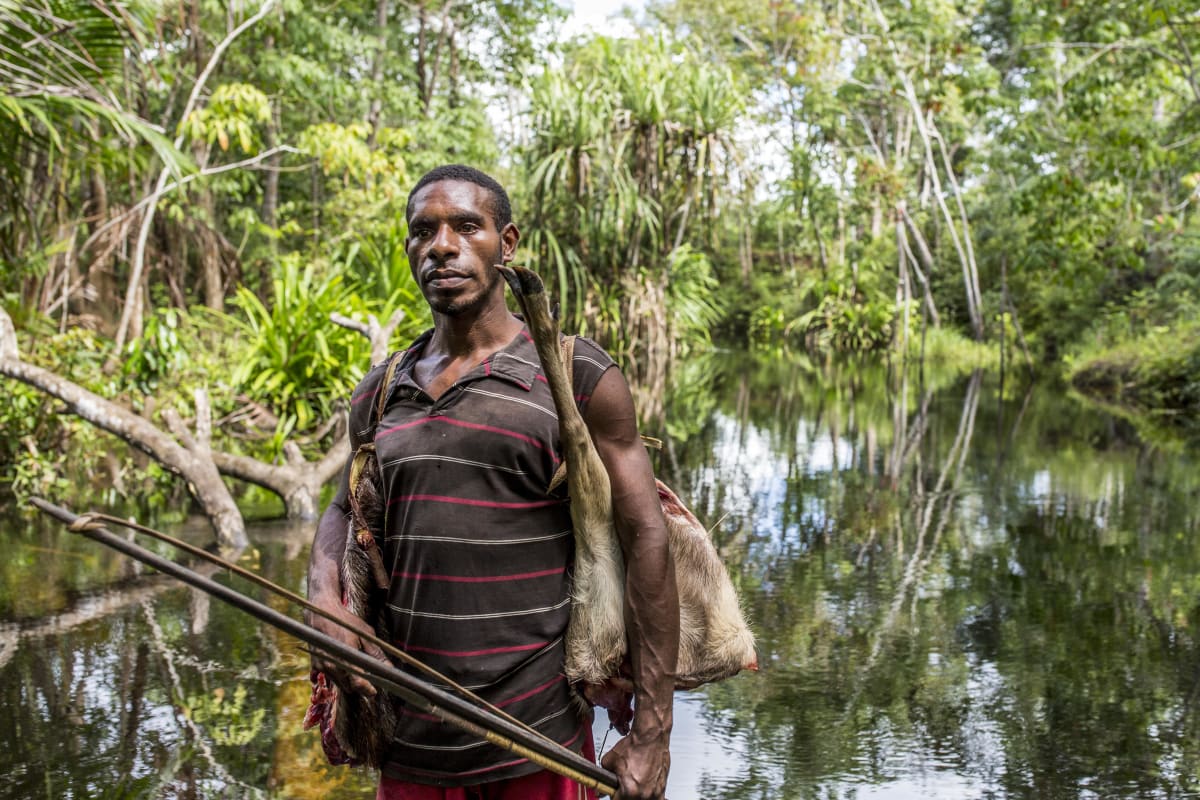
Instead, police and representatives turned up to the villages handing out envelopes full of cash. There was no clarity around what these were for, but the project to clearfell their land has divided once close Indigenous clans.
The effects can be seen in a film, The Secret Deal to Destroy Paradise, in which locals talk of not being able to carry out their traditional way of life and practices such as hunting, fishing, gathering and processing sago.
“It feels like the clouds have fallen. All destroyed in an instant. What will be the fate of our grandchildren?” asks the chief of the Auyu clan, Bonevasius Hamnagi.
United Arab Emirates-owned companies with concessions in the same Tanah Merah project have already displaced some traditional hunting grounds.
“It used to be customary indigenous forest,” says Mikael Felix Mamon of Anggai village, as he stands before a seemingly endless array of uniform oil palm saplings sitting atop the bare ochre earth, waiting to be planted.
“It used to be a place for hunting. We searched for pigs or other animals. Fishing. And a source of drinking water. We could find these things quite freely. Now the indigenous people looking for food to fulfill our basic needs must go a long way. Further inland. Because our forest around here is gone.”
And agreements to create health, education, facilities, clean water, housing and electricity have not been fulfilled.
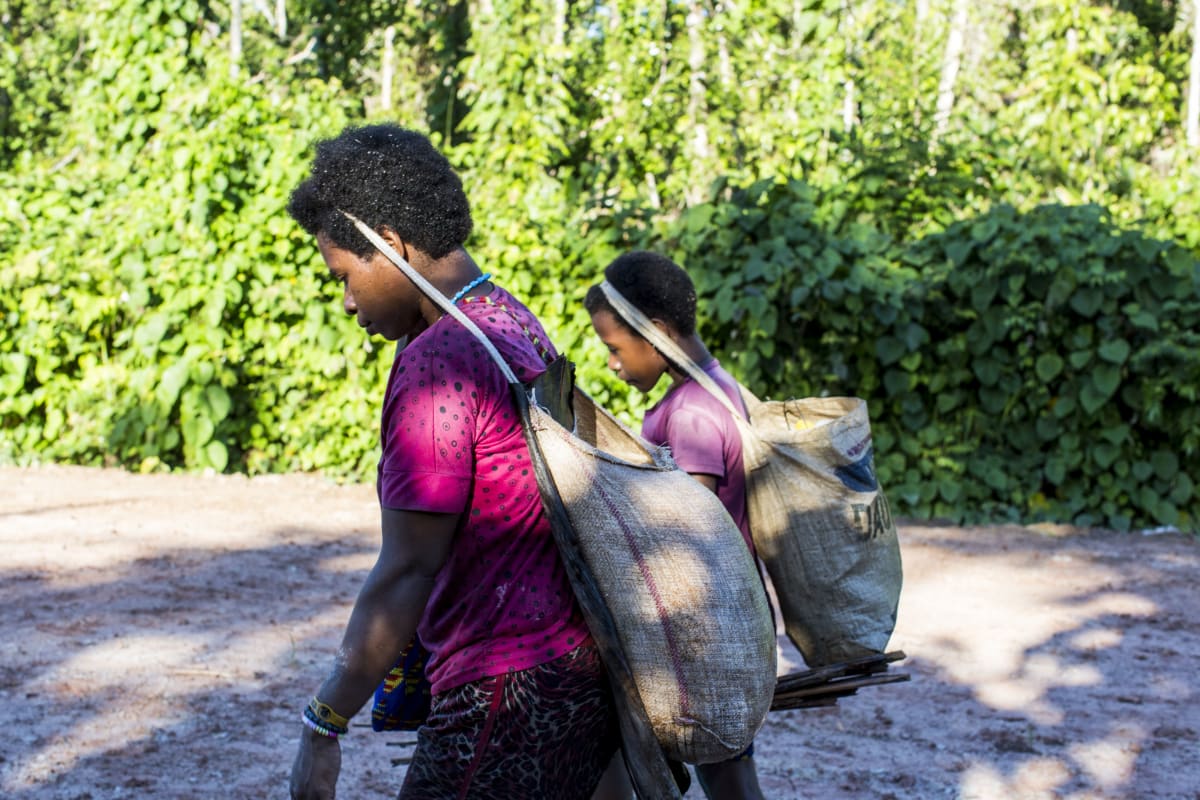
Grant Rosoman says this is a common occurrence in Papua and that companies can make up to US$2000 per hectare per year while paying locals less than US$10 per hectare in a one-off payment for taking their land.
“The impact on the community — we are hearing from them and from the local NGOs that are supporting the community — is huge. And if we look at the concessions that have already been developed in that area, their loss of livelihood, their rights not being respected, their sacred sites being desecrated and destroyed, and their food and water sources being destroyed as well.”
And many locals are pushing back against the corporations, people like longtime environmental activist Bustar Maitar, who leads campaigns in Papua to protect the ecosystems through the EcoNusa Foundation, and clan leaders who have been coming together to put pressure on the government to stop the deforestation.
A political situation
There have also been long running debates about whether the Tanah Merah permits to log and plant palm oil have been obtained legally.
According to the NGO Pusaka, permits have not been issued for Digoel Agri to clear the land and is calling on the Indonesian government to take steps to halt the destruction.
They claim that because the original permits were not issued in accordance with the correct process, including the consent of local indigenous people, this would mean the forest clearing happening under Digoel Agri is illegal.
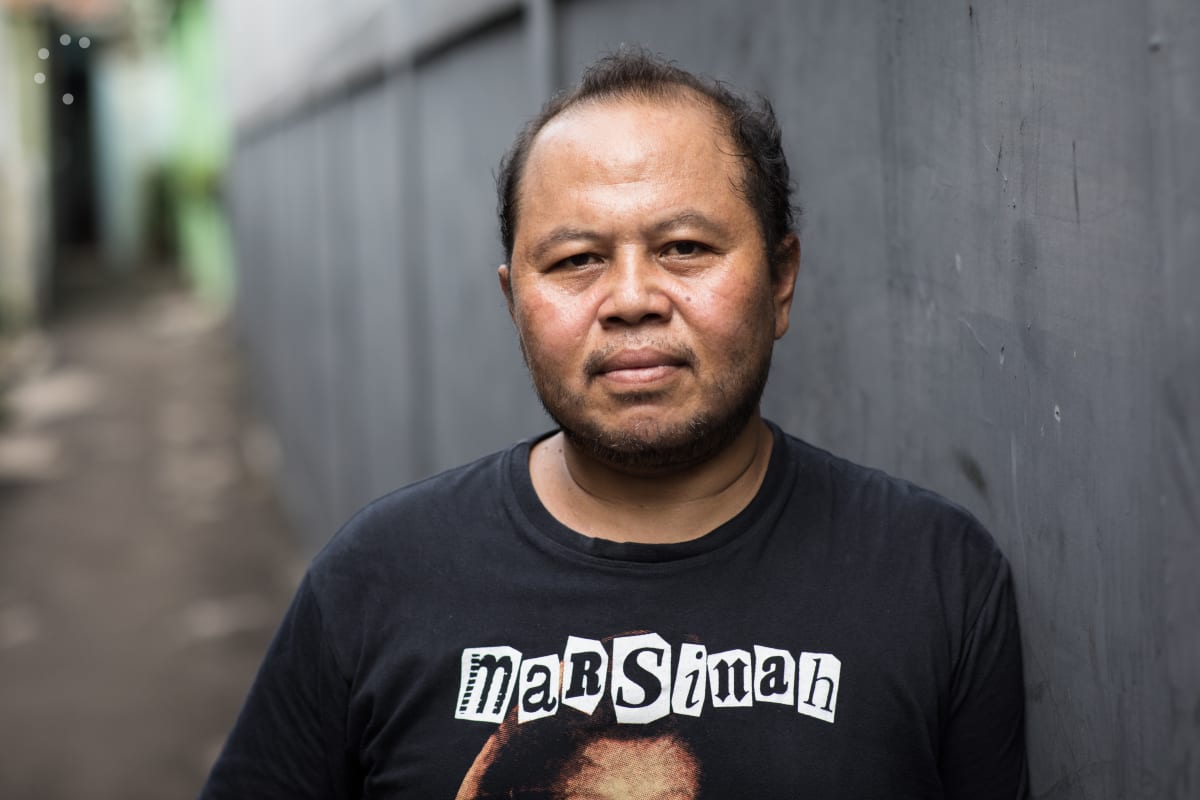
When Newsroom contacted Pusaka director Franky Samperante, he was firm in his request to international players like Neville Mahon.
“I found that the companies are carrying out eviction of the forests and important places of indigenous peoples without the consent of many communities, they are threatened with losing their sources of food and livelihoods.
“We ask the government and companies to be consistent with regulations and commitments to sustainable development, by not doing deforestation, violating human rights and respecting the rights of indigenous peoples.”
Indonesia is no stranger to human rights controversy. According to Amnesty International reports, at least 100,000 West Papuans have been reported killed by the Indonesian authorities since the takeover in the 1960s.
Some New Zealand academics have described Indonesia’s military killings of indigenous people in West Papua as a “slow-moving genocide”, and the conflict between the Indonesian military and the Free Papua movement continues.
Everyone Newsroom spoke to was reluctant to answer questions about the Indonesian government’s involvement in deforestation.
But without government approval, these individual companies would never be allowed to bring in the bulldozers, so isn’t this, in fact, a political situation?
“Papua as a sensitive place for the Indonesian government,” says Greenpeace’s Grant Rosoman. “And there are rights abuses that are going on. They’re being documented by some of the media that’s coming out and it’s a very unsafe place. So there is a lot of fear about speaking out about Papua and what’s going on there.”
“We focus on the deforestation and we can monitor that from satellites so we can see what’s going on and we don’t believe it’s a good thing for a New Zealander like Neville Mahon to be there destroying the forest and basically staining the reputation of all New Zealanders in the process of doing it.”
Since our café meeting with Mahon, we have contacted him several times in an attempt to reconcile his statements to us with what’s on the official documents.
We again received a reply from the company saying he has a small beneficial shareholding.
In the meantime, the bulldozers continue their work while activists and people like Rosoman try to keep them at bay.
“It’s not acceptable to be clearing rainforest in this day and age. We’re in 2021, we’re in a climate emergency. There’s plenty of other land where you can develop businesses. We do not need to clear rainforest for business anymore. It shouldn’t be done.”
Reported by Newsroom with the support of NZ On Air. Republished by Asia Pacific Report with the permission of Newsroom and Newsroom Investigations editor Melanie Reid.










